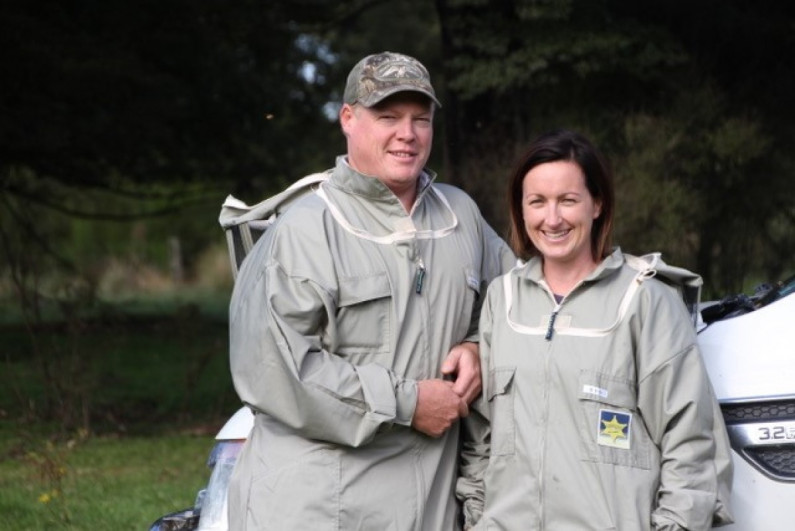Focusing on sustainability protects the bees and future generations

See how beekeepers in the food and fibre sector run a sustainable business.
What's on this page?
Sustainability involves caring for the bees and the environment
For beekeepers Ben and Leah Mee, running a sustainable business is more than just good beekeeping practice.
“We’re caretakers of the land for generations to come, so we have a responsibility to introduce bee-friendly and environment-friendly practices,” says Leah. “But we also want to have a positive impact on our community, whether it be educating kids about bees or providing employment opportunities for local people.”
The Mees’ dedication to sustainability was recognised by Apiculture New Zealand in 2018 when they were awarded the Sustainability Good Practice Award.
Leah says “We had a clear vision from the get-go of running a business that supports the environment and have stuck to it.”
That was back in 2014, when the Mees decided to start something new − their own beekeeping business.
“The first sustainable thing we did,” Leah recalls, “was set up our hives away from intensive farming and agrichemicals in alpine and sub-alpine areas.”
Take a look at some of the ways the Mees run their business sustainably
- Keep enough honey on the hives over winter, making it unnecessary to feed the bees sugar syrup.
- Run a wasp baiting programme on apiary sites where there’s a wasp problem, including at the local primary school.
- Use wooden honey boxes and frames that can be repaired, rather than plastic which goes to landfill.
- Plant more trees for the bees along waterways near their apiary sites.
- Provide caregiver-friendly hours in their honey extracting and packing sheds.
- Use local businesses to do their marketing.
- Visit schools and attend events such as A&P shows to educate the public, especially young people, about protecting bees.
There’s always more to learn
“We’re always happy to look at new ways we can reduce our carbon footprint, but there are challenges,” says Ben.
“Packaging is one of the biggest. Glass takes a great deal more energy to produce so we’re still packing our honey in recyclable plastic. But we’re moving toward using 100% recycled plastic, a more sustainable alternative.”
New technologies encourage sustainable practice
“As we developed the business, the benefits of using computer scanning software for managing our hives became clear,” says Leah.
“Every one of our 1,000 hives is logged onto our hand-held scanner so as we inspect and work each hive we can keep track of what’s been done, when and to what hives. It saves us a lot of time and paperwork.
“It’s these kinds of efficiencies which help with the drive towards sustainability,” says Leah. “But you always need to remember what’s achievable – being sustainable doesn’t mean taking on something that’s going to break the bank. Often it’s the small steps that count.”
Find out more
If you want to help the environment and your local community, consider becoming a beekeeper.
Find out what it’s like setting up a business and working for yourself.
Updated 29 Oct 2019